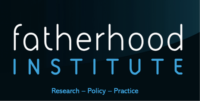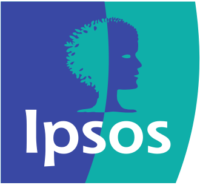WWEICSC have commissioned Ipsos UK to conduct a full-scale randomised controlled trial of the Improving Safeguarding through Audited Father-Engagement (ISAFE) training programme which aims to improve local authority children’s service’s engagement with fathers. The programme is being delivered by the Fatherhood Institute and evaluated across eight local authorities in England that face different social and geographical challenges; Somerset, Havering, Wiltshire, Birmingham, Merton, Durham, Norfolk and Surrey.
In response to incidents of services’ failure to routinely and systematically engage, assess, support and challenge men in families, Improving Safeguarding through Audited Father-Engagement (ISAFE) is a training and organisational development intervention, developed by the Fatherhood Institute (FI) and CASCADE, to improve engagement with fathers by local authority children’s services.
The intervention is delivered by FI and CASCADE trainers and is comprised of complementary training sessions, which are delivered in sequence to key groups of staff that contribute to local authorities’ child protection social work function. These include:
- Training programme for children and family social workers covering two modules:
- i) father engagement techniques
- ii) motivational interviewing.
- Quality assurance (QA) audit training focused on how to monitor social workers’ father-engagement routinely and systematically.
- Champion training of middle-management social workers, to help them lead and support their colleagues to do the best possible job engaging with fathers.
- A webinar delivered to local authority senior leaders, to push through changes in policies and systems that will make father engagement part of LA’s routine, everyday work.
The eight local authorities will identify six teams to take part in the trial, totalling 48 teams, made up of approximately 10 social works in each team. The teams will be randomly allocated to the treatment or control group and the training courses are delivered online to groups of up to 15 participants per session.
The evaluation of the ISAFE intervention will assess the efficacy of ISAFE using a non-blinded two-armed full-scale randomised controlled trial (RCT), an implementation and process evaluation (IPE) and a cost analysis. For the RCT, Ipsos UK will explore the effectiveness of ISAFE through a series of primary and secondary outcomes.
The primary outcome is father engagement practices among social workers in children’s social care services, measured using an adapted version of the Father Engagement Questionnaire. The secondary outcomes will focus on the rates of father engagement, self-efficacy and team culture through self-reported measures from social workers. Outcome measures will be collected through an online survey at three time points: baseline (before ISAFE begins), endline (after ISAFE finishes), and a three-month follow-up. The IPE component will explore factors affecting implementation to understand how and why ISAFE does or does not have the desired impact.
The ISAFE training programme will be delivered for 13 months, running from April 2023 to April 2024, with the final report set to be published in early 2025.


